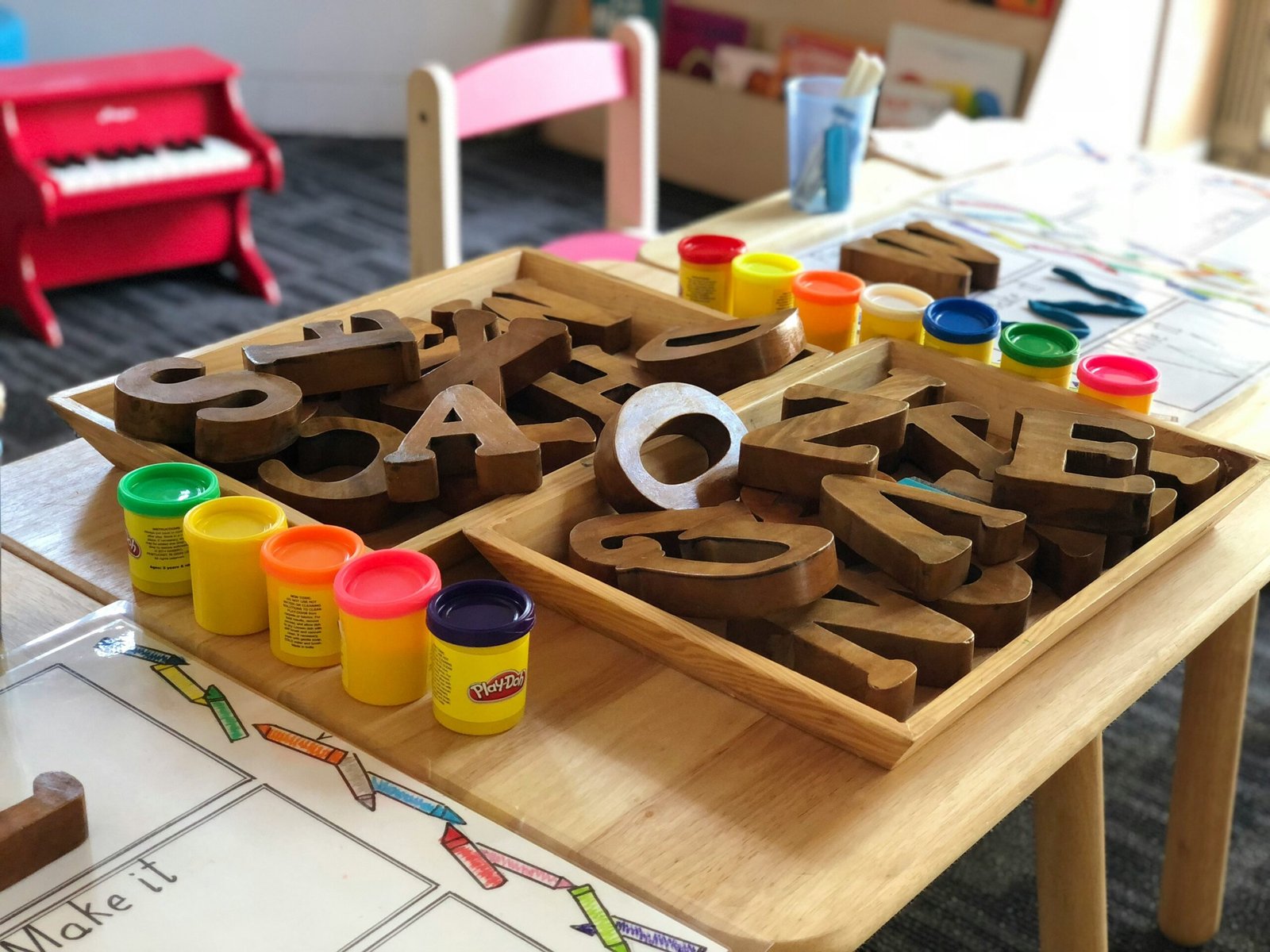Introduction to the Preschool Boom in India
The preschool sector in India has witnessed a remarkable surge over the past decade, transforming into one of the fastest-growing segments in the education sector. Historically, early childhood education in India was largely informal, often managed at home or through community initiatives. However, recent trends indicate a significant shift towards structured preschool education, driven by various socio-economic factors.
One of the pivotal reasons behind this boom is the increasing awareness among parents about the importance of early childhood education. Modern parents are more informed and place a higher value on structured preschool programs that offer cognitive and social development opportunities for their children. This shift in perception has catalyzed a growing demand for quality preschool education.
Statistical evidence underscores this rapid expansion. According to a report by Market Research Future, the Indian preschool market is projected to grow at a compound annual growth rate (CAGR) of approximately 8% from 2021 to 2026. This growth is further bolstered by the rise in dual-income households, where both parents are working professionals, necessitating reliable and educational childcare solutions.
Additionally, government initiatives and policies aimed at promoting early childhood education have played a crucial role. The introduction of guidelines by the National Council of Educational Research and Training (NCERT) and the implementation of the National Education Policy (NEP) 2020 emphasize the importance of early learning, thereby fostering the preschool sector’s growth.
The entry of numerous private players and international preschool chains has also significantly contributed to the industry’s expansion. These organizations bring in innovative teaching methodologies and world-class infrastructure, setting new benchmarks for quality in early childhood education.
Overall, the preschool sector in India is experiencing an unprecedented boom, driven by a combination of changing societal norms, increasing parental awareness, supportive government policies, and the influx of private investments. This growth trajectory underscores the importance of early childhood education as a foundational pillar for a child’s future development.
Changing Socio-Economic Factors
The boom in the preschool business in India can be largely attributed to significant shifts in socio-economic factors. One of the most notable changes is the rapid urbanization that has taken place over the past few decades. As more people migrate to urban areas in search of better employment opportunities, the demand for quality preschool education has risen. Urban centers typically offer more employment opportunities, particularly for women, thereby increasing the number of dual-income households. This has led to a greater emphasis on early childhood education as parents seek to provide their children with a strong educational foundation from a young age.
Another critical factor is the rise in disposable incomes. With more families enjoying higher income levels, there is a growing willingness to invest in early childhood education. Parents are increasingly aware of the benefits of enrolling their children in preschools that offer structured curriculums and developmental activities. This heightened awareness and financial capability have fueled the growth of the preschool sector, as parents seek out institutions that promise holistic development for their children.
The increasing prevalence of nuclear families has also played a pivotal role in the expansion of the preschool industry. Unlike joint family structures, nuclear families often lack the extended support system that can assist in early child-rearing. This absence of additional caregivers has compelled many parents to look for reliable preschool options where their children can be cared for and educated during work hours. Preschools have thus become essential for many families, providing not just educational opportunities but also a safe and nurturing environment for young children.
These changing socio-economic factors have collectively shifted societal norms and expectations regarding early childhood education. There is now a widespread recognition of the importance of the early years in a child’s development, leading to an increased demand for quality preschool education. This societal shift underscores the growing belief that a strong start in education can significantly influence a child’s future success.
Government Initiatives and Policies
The Indian government has played a pivotal role in fostering the growth of the preschool sector through various initiatives and policies aimed at promoting early childhood education. One of the cornerstone policies has been the National Early Childhood Care and Education (ECCE) Policy, which sets a comprehensive framework for the holistic development of children below six years of age. This policy underscores the importance of early learning and lays the foundation for the establishment and regulation of preschools across the country.
Additionally, the government has introduced several subsidy programs aimed at making early childhood education more accessible and affordable. These programs provide financial support to both private and public preschool institutions, thereby encouraging the establishment of new preschools and improving the quality of existing ones. By easing the financial burden on parents, these subsidies have significantly increased preschool enrollment rates.
Regulatory frameworks have also been implemented to ensure that preschools adhere to certain standards of quality and safety. The introduction of guidelines for infrastructure, teacher qualifications, and curriculum has helped in maintaining a uniform standard across preschools, thereby boosting parents’ confidence in enrolling their children in these institutions. This regulatory oversight has been instrumental in elevating the overall standard of early childhood education in India.
Public awareness campaigns have further contributed to the growth of the preschool sector. The government, in collaboration with various non-governmental organizations and educational bodies, has launched extensive campaigns to educate parents about the importance of early childhood education. These campaigns have been successful in changing societal perceptions and increasing the demand for quality preschool education.
The impact of these government initiatives and policies on the preschool business in India has been profound. They have not only facilitated the establishment of numerous preschools but also ensured that these institutions provide quality education, thus fostering a conducive environment for the holistic development of young children. As a result, the preschool business in India continues to thrive, driven by a well-structured support system and a growing awareness of the importance of early childhood education.
Increasing Awareness of Early Childhood Education Benefits
In recent years, there has been a marked increase in awareness among parents in India regarding the benefits of early childhood education. This shift in perception is largely attributed to scientific research and widespread media coverage that emphasize the crucial role of early learning in a child’s overall development. Numerous studies have demonstrated that children who attend quality preschools exhibit better cognitive, social, and emotional skills compared to their peers who do not have similar early educational experiences.
Media outlets, educational platforms, and parenting forums have been instrumental in disseminating information about the advantages of early childhood education. Programs and articles frequently highlight how preschool education provides a strong foundation for lifelong learning, boosts academic preparedness, and fosters essential life skills. This heightened media presence has not only informed parents but has also influenced their attitudes, encouraging them to prioritize early education for their children.
For instance, a study conducted by the National Institute for Early Education Research (NIEER) was extensively covered by Indian media, showcasing how early childhood education contributes to better school readiness and long-term academic success. As a result, parents are becoming more proactive in seeking preschools that offer structured, enriching environments for their young ones. This increased awareness has directly led to higher enrollment rates in preschools across the country.
Moreover, various government and private sector initiatives have also played a significant role in promoting the importance of early education. Campaigns and workshops aimed at educating parents about the benefits of preschool education have been successful in shifting public opinion. Consequently, the demand for quality preschools has surged, leading to a boom in the preschool business in India. This trend highlights the growing recognition among parents of the profound impact that early childhood education can have on their children’s future academic and social success.
Rising Number of Working Parents
The increasing number of working parents in India, particularly the surge in working mothers, has significantly contributed to the booming preschool industry. With dual-income households becoming more common, there is an augmented need for reliable and quality early childhood education and care facilities. This transformation in the traditional family structure has sparked a demand for preschools that not only offer educational value but also provide a safe and nurturing environment for young children during the workday.
According to the International Labour Organization (ILO), the female labor force participation rate in India has seen a considerable rise over the past decade, albeit with fluctuations. As of recent reports, approximately 20.3% of women are part of the workforce, a statistic that underscores the growing presence of working mothers. This demographic shift necessitates robust support systems, including preschools, to accommodate the childcare needs of working parents.
Moreover, data from the World Bank indicates that dual-income households are on the rise, with both parents contributing to the family income. This economic dynamic is pivotal in driving the demand for preschools. Parents seek institutions that provide not only foundational education but also comprehensive care, enabling them to balance their professional commitments with their parental responsibilities.
The correlation between workforce participation rates and preschool enrollment is evident. As more parents, especially mothers, join the workforce, the enrollment rates in preschools have surged. This trend reflects a broader societal acknowledgment of the importance of early childhood education in fostering cognitive, social, and emotional development. Furthermore, preschools offer structured programs that prepare children for the formal education system, thereby appealing to parents who prioritize academic readiness.
In essence, the rise in working parents, particularly in dual-income households, has been a driving force behind the burgeoning preschool sector in India. The necessity for expert care and early education has led to a rapid expansion in the availability and quality of preschools, catering to the evolving needs of modern families.
Proliferation of Franchise Models
The preschool sector in India has witnessed a significant boom, and a critical factor contributing to this exponential growth is the proliferation of franchise models. Franchising has emerged as a powerful business strategy, enabling entrepreneurs to enter the preschool domain with relative ease. This model offers a structured and standardized approach, ensuring consistent quality and brand recognition, which are essential in the educational sector.
Franchise models in the preschool industry provide a comprehensive package that includes curriculum development, teacher training, marketing support, and operational guidelines. This all-encompassing support system reduces the risk for new entrepreneurs and allows them to focus on delivering quality education. Established franchisors bring a wealth of experience and tested methodologies, which can be crucial for maintaining high standards across all franchise outlets.
Successful preschool franchises such as Kidzee, EuroKids, and Bachpan have showcased remarkable growth trajectories. Kidzee, a leading preschool franchise, has over 1900 centers across more than 750 cities in India. The brand’s extensive reach and consistent quality have made it a trusted name among parents. Similarly, EuroKids has expanded its footprint to over 1000 centers, offering a blend of international standards and local relevance. Bachpan, known for its innovative teaching methodologies, operates more than 1100 schools nationwide, demonstrating the scalability of the franchise model.
The standardized quality ensured by these franchises instills confidence in parents, who seek reliable and quality education for their children. Brand recognition plays a pivotal role in attracting enrollments, as parents are more likely to trust established names. Furthermore, the collective marketing efforts of franchise networks amplify their visibility and credibility, driving further growth.
In essence, the franchise model has democratized access to the preschool business, making it more accessible for budding entrepreneurs. By providing a proven framework and ongoing support, these models have significantly contributed to the burgeoning preschool sector in India, ensuring a balance of quality education and business viability.
Innovations in Preschool Education
Innovations in preschool education have significantly contributed to the booming preschool business in India. One of the foremost advancements is the evolution of teaching methodologies. Modern preschools are increasingly adopting activity-based learning and experiential education, which focus on learning through play and hands-on experiences. These methodologies are designed to foster cognitive, social, and emotional development in young children, making learning both enjoyable and effective.
The integration of technology in preschool classrooms is another pivotal innovation. Interactive smartboards, educational apps, and digital storytelling tools are now common in many preschools. These technological tools not only make learning more engaging for children but also enable teachers to customize lessons to suit individual learning paces and styles. Moreover, technology facilitates better communication between teachers and parents, giving parents real-time updates on their child’s progress and activities.
Customized learning programs have also played a crucial role in the growth of the preschool sector. Preschools now offer tailored educational plans that cater to the unique needs and interests of each child. These programs often include a mix of academic subjects, creative arts, physical activities, and social skills development. By focusing on the holistic development of children, these customized programs ensure that each child receives a well-rounded education.
These innovations are not only improving educational outcomes but also attracting a growing number of parents who are keen on providing the best possible start for their children. The emphasis on modern teaching techniques, technological integration, and personalized learning experiences makes preschools more appealing and trustworthy. As a result, the preschool business in India continues to thrive, driven by these forward-thinking educational practices.
Future Prospects and Challenges
The preschool industry in India is poised for significant growth in the coming years, driven by increasing urbanization, rising disposable incomes, and a growing awareness of early childhood education’s importance. As more parents recognize the benefits of enrolling their children in preschools, the demand for quality early education facilities is expected to surge. This trend offers promising future prospects for the industry, including the potential for expansion into untapped rural markets and the incorporation of advanced educational technologies.
However, with these prospects come several challenges that the preschool sector must address to sustain its growth. One of the primary concerns is market saturation, particularly in urban areas where numerous preschools are already competing for a limited number of enrollments. To differentiate themselves, preschools will need to innovate and offer unique value propositions, such as specialized curricula or enhanced extracurricular activities.
Another significant challenge is the need for stringent regulatory oversight. Currently, the preschool industry in India operates with minimal regulation, leading to inconsistencies in the quality of education and safety standards. Establishing comprehensive regulatory frameworks will be crucial to ensure that all preschools meet high standards of education and care. Such regulations could include mandatory teacher training programs, standardized curricula, and regular inspections to maintain quality control.
Moreover, the sector must navigate the integration of technology in early childhood education. While digital tools and platforms can enhance learning experiences, it is essential to strike a balance to avoid over-reliance on technology, which may impede the development of social and motor skills in young children. Preschools will need to adopt a blended approach that combines traditional teaching methods with technological advancements to provide a holistic education.
In conclusion, the preschool industry in India holds substantial growth potential, but it must address challenges such as market saturation and regulatory oversight to sustain its momentum. By innovating, adhering to high standards, and integrating technology thoughtfully, the sector can continue to thrive and contribute significantly to the country’s educational landscape.


